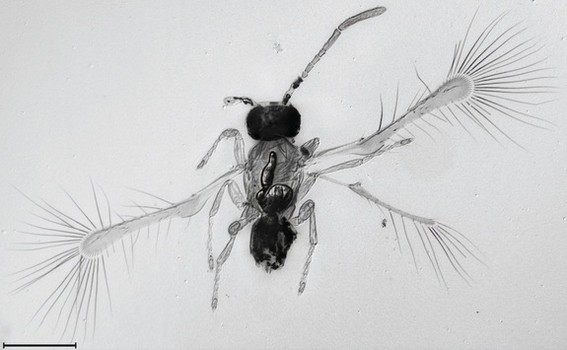Researchers have found a new species of fairyfly which they named, appropriately enough, Tinkerbella nana, LiveScience reported yesterday.
The fairyfly lives in Costa Rica, and despite its name sake it leads a rather gruesome life. T. nana is a species of chalcid wasp. Most of these wasp species live parasitic lifestyles, parasitizing the eggs and larvae of other insects. Farmers love the bugs, because they help to control crop pests.
Fairyflies tend to be very small. T. nana measures, on average, 250 micrometers in length. To put how tiny that is in perspective, one micrometer is a thousandth of a millimeter, or a millionth of a meter. They’re so tiny that they’re hard to find — the researches discovered the flies by looking at insect eggs.
The insects have unusual looking wings — they are long and skinny, and covered in hair-like fringes. It is hypothesized that the fringes help reduce drag when the insects fly. T
he teeny-tiny parasites raise the question of just how small insects can get. So far, the lower limit of insect size is not known.















